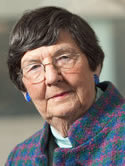| Abstract: |
Purpose: The demand for hematologists and oncologists is not being met. We hypothesized that an inpatient hematology-oncology ward rotation would increase residents' interest. Potential reasons mitigating interest were explored and included differences in physician distress, empathy, resilience, and patient death experiences. Methods: Agreement with the statement "I am interested in pursuing a career/fellowship in hematology and oncology" was rated by residents before and after a hematology-oncology rotation, with 0 = not true at all, 1 = rarely true, 2 = sometimes true, 3 = often true, and 4 = true nearly all the time. House staff rotating on a hematology-oncology service from November 2013 to October 2014 also received questionnaires before and after their rotations containing the Connors-Davidson Resilience Scale, the Impact of Events Scale-Revised, the Interpersonal Reactivity Index, demographic information, and number of dying patients cared for and if a sense of meaning was derived from that experience. Results: Fifty-six residents completed both before- and after-rotation questionnaires (response rate, 58%). The mean interest score was 1.43 initially and decreased to 1.24 after the rotation (P = .301). Female residents' mean score was 1.13 initially and dropped to 0.81 after the rotation (P = .04). Male residents' mean score was 1.71 initially and 1.81 after the rotation (P = .65). Decreased hematology-oncology interest correlated with decreased empathy; male interest decrease correlated with decreased resilience. Conclusion: An inpatient hematology-oncology ward rotation does not lead to increased interest and, for some residents, may lead to decreased interest in the field. Encouraging outpatient hematology-oncology rotations and the cultivation of resilience, empathy, and meaning regarding death experiences may increase resident interest. Copyright © 2015 by American Society of Clinical Oncology. |



